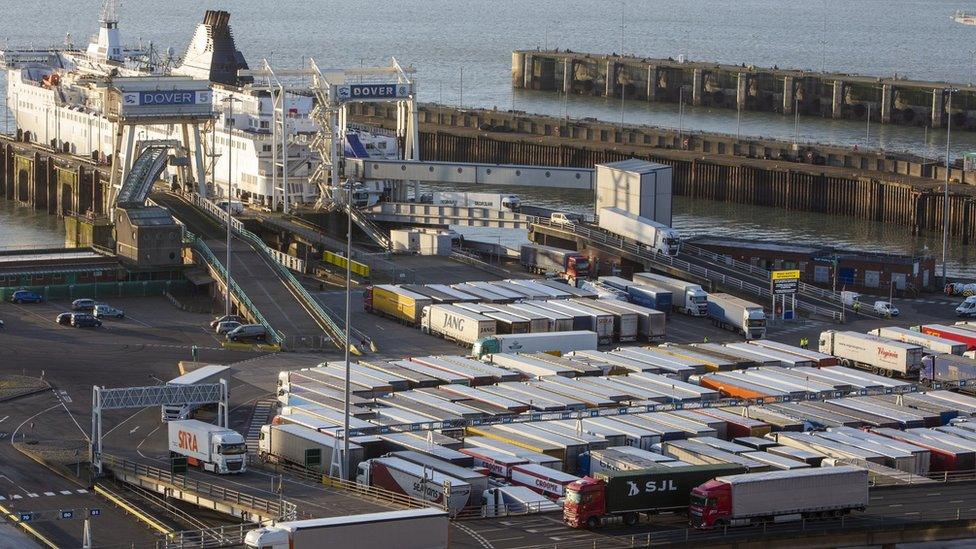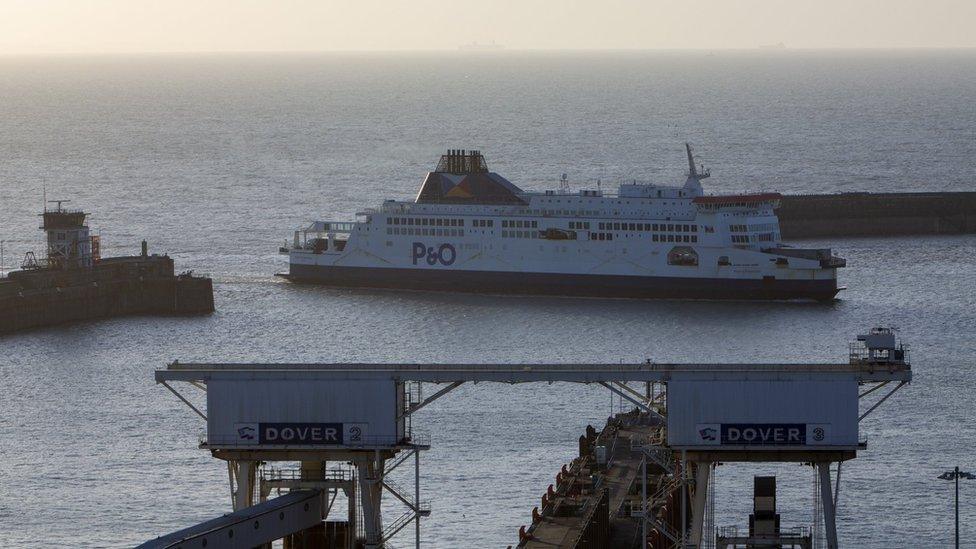Dover port 'to ensure goods flow' in coronavirus crisis
- Published

Five million vehicles pass through Dover port every year
Goods will be kept moving in Britain during the coronavirus crisis, the Port of Dover's chief executive has said.
Doug Bannister said supermarkets would be relying on the "speed and capacity" of Europe's busiest port.
He said it would "step up to help ensure that vital goods flow to their destinations", as shoppers continue to strip supermarket shelves bare.
Five million vehicles annually use the port, which handles £122bn of trade and 17% of the country's goods trades.
Mr Bannister said the coronavirus situation could continue for several months, describing it as "a marathon, not a sprint."
"Yet, as supermarket shelves need constantly filling and refilling each and every day... supply chains will always rely on the speed and capacity of our operation.
"It is essential that the Port of Dover continues to provide this critical link. People up and down the UK are counting on us for the goods, medicines and resources they need."
In an open letter, external, he said he could think of no other time when the role played by the port, ferry operators and cross-Channel system in feeding people across the country was more important.

The port is liaising with ferry and shipping lines about suspected coronavirus cases
Mr Bannister said the port had been at the forefront of major challenges many times before, including the volcanic ash cloud in 2010 that left countless passengers trying to reach destination all over the globe.
Practical measures already in place at the port includ enhanced cleaning regimes; continued distribution and display of government health advice; monitoring suspected coronavirus cases and liaising with ferry and shipping lines; providing dedicated isolation rooms and protecting on-site personnel.

LIVE COVERAGE: Latest from the BBC
EASY STEPS: How to keep safe
A SIMPLE GUIDE: What are the symptoms?
GETTING READY: How prepared is the UK?
PUBLIC TRANSPORT: What's the risk?

- Published19 March 2020

- Published5 July 2023

- Published19 March 2020

- Published19 March 2020
